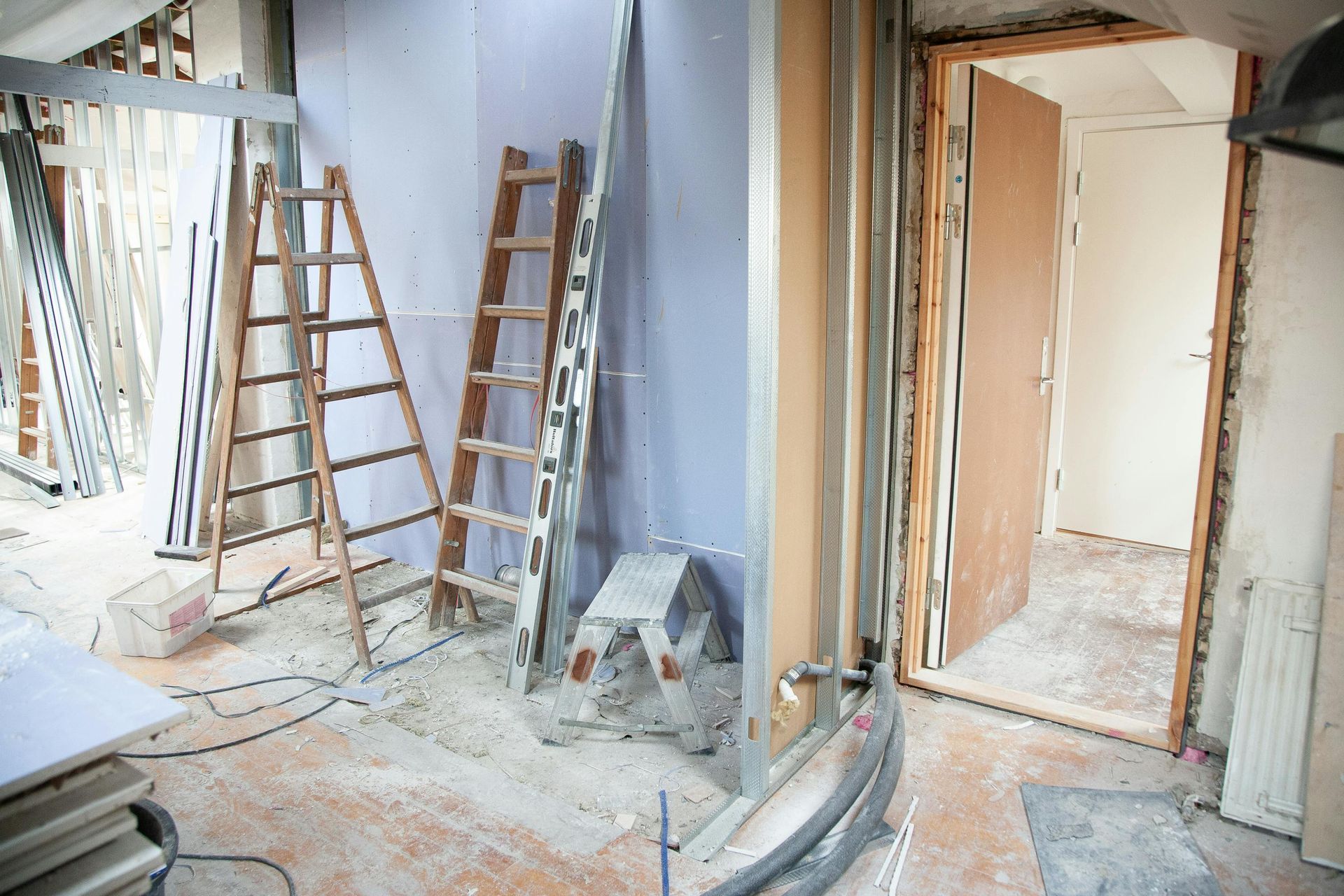What Permits Are Required for Remodeling in Tampa, FL?
In Tampa, building permits are generally required for any remodeling project that involves structural changes, electrical work, plumbing, HVAC systems, or changes to windows, doors, or roofing.
Planning a home improvement project in Tampa? Before you begin any renovations, it’s essential to understand the permits required for remodeling in Tampa, FL.
Whether you're upgrading your kitchen, transforming a bathroom, or tackling a full structural remodel, pulling the right permits is essential for staying compliant with city and state building code regulations.
Understanding the Permitting Process in Tampa
In Tampa, the permitting process is managed by the City of Tampa Development Services Division. All remodeling projects must comply with the Florida Building Code and local zoning ordinances. If your project involves structural, mechanical, electrical, or plumbing changes—or occurs within a flood zone—it will likely require plan review and permitting.
Certain remodels may also involve FEMA Substantial Improvement Determinations or oversight from private providers registered with the city.
When Is a Building Permit Required for Remodeling?
You’ll need a building permit for Tampa home remodeling projects that involve:
- Structural alterations or additions to a home
- Electrical upgrades or panel changes
- Plumbing or gas line modifications
- HVAC installations or ductwork changes
- Roofing replacements or major repairs
- Installing or replacing windows and doors
- Garage conversions, decks, or enclosures
These permit types apply to both residential and commercial properties, ensuring compliance with building safety standards.
What Does Not Require a Permit?
Some smaller upgrades do not require a permit in Tampa. These include:
- Interior painting, wallpapering, or trim
- Flooring installation (tile, laminate, carpet, etc.)
- Replacing countertops or cabinets (without plumbing/electrical changes)
- Minor repairs under threshold values
If you're unsure whether your project qualifies for an exemption, consult Tampa’s Building Department before beginning.
Who Can Submit a Permit Application?
Licensed contractors are typically required to submit building permit applications. Homeowners may apply under the Owner-Builder Exemption if:
- The homeowner occupies the home
- The work is not for resale or commercial use
- The homeowner is acting as the general contractor
In these cases, you'll need to complete an Owner-Builder Disclosure Statement and meet additional requirements.
Step-by-Step Permit Application Process
Here’s how to apply for a residential remodeling permit in Tampa:
1. Start Online at Tampa.gov
Go toTampa's Online Permitting Portal and register your account.
PRO TIP: Use the Construction Fee Estimator on Tampa.gov to get an idea of how much your fee will cost.
2. Select the Correct Permit Type
Choose “Residential Alteration” or other applicable permit category based on the scope of work.
3. Upload Required Documents
Submit architectural drawings, site plans, energy calculations, and any product approvals. Flood zone properties may require FEMA documentation.
4. Pay Plan Review Fees
An initial fee will be due at submission. Additional fees may follow after the plan review.
5. Complete Plan Review
Plans are reviewed for code compliance, zoning, and floodplain regulations. Timelines vary depending on the complexity of your project.
6. File a Notice of Commencement
For projects valued over $2,500, file a Notice of Commencement with Hillsborough County before work begins.
7. Download Your Permit and Post On-Site
Once approved, you’ll be notified to download and print the permit for on-site posting.
8. Schedule Inspections
Mandatory inspections must be passed for each major construction phase (e.g., rough plumbing, framing, final).
9. Submit Revisions if Needed
If your plans change, use the portal to upload revised drawings and request a permit amendment.
10. Final Inspection and Closeout
Pass all final inspections to close your permit. Unclosed permits can delay refinancing or the sale of the property.
11. Obtain a Certificate of Completion
Once approved, request your official Certificate of Completion or Certificate of Occupancy as applicable.
Common Remodeling Projects That Require a Permit
In Tampa, permits are typically required for:
- Full kitchen remodels (especially with layout or plumbing changes)
- Bathroom renovations with fixture replacements or electrical changes
- Room additions, second-story expansions, or
ADUs
- Garage enclosures or conversions to living space
- Structural wall removals or load-bearing beam installations
- HVAC system replacements
These projects often trigger plan reviews and inspections for safety and code compliance.
Final Tips on the Permit Process in Tampa
Following the correct permitting process in Tampa not only ensures code compliance, it protects your investment and prevents legal or financial complications during resale.
At Coastal Haven Design + Build, we handle the entire process—from creating construction plans and uploading documentation to scheduling inspections and closing out permits. We work directly with the City of Tampa’s Development Services to ensure every remodeling project we manage is code-compliant and stress-free.
Whether you’re envisioning a luxury kitchen upgrade or an extensive full-home remodel, our team ensures the permit process is seamless, so you can focus on the transformation.
Let us handle the red tape—so you can enjoy the results.
Related Articles:
- What Permits Are Required for Remodeling in Palm Harbor?
- What Permits Are Required for Remodeling in Clearwater?
- What Permits Are Required for Remodeling in Largo?




